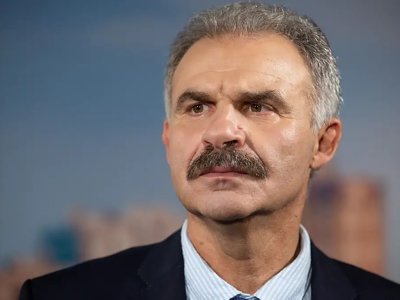Illegal trade is booming as Central Asian governments fail to act

Illicit trade in Kazakhstan and the rest of Central Asia is growing exponentially amid government inaction, according to the Transnational Alliance to Combat Illicit Trade (TRACIT).
Central Asia’s proximity to Russia, which is under Western economic sanctions, and to China, the global manufacturer of consumer goods, have increased the region’s vulnerability to illegal trade, TRACIT’s senior policy adviser Esteban Giudici told journalists in Almaty.
TRACIT is a private sector initiative that advocates the strengthening of legal mechanisms worldwide to fight and control illegal trade.
The bulk of the goods that are brought into Central Asia illegally are from the FMCG (Fast Moving Consumer Goods) category, such as tobacco, alcohol, food stuffs, pharmaceuticals and garments.
Another major subject of illicit trade is fuel, particularly liquified gas.
Giudici said there was also a fast growing illicit trade in cigarettes — mainly from factories in the UAE — because of the constantly increasing excise duties.
According to the Kazakh government, illegal cigarettes made up 1.6 percent of all tobacco goods sold on the internal market in 2020. Independent sources said that they made up 3-6 percent in 2021-2022 and the figure is expected to reach 10 percent in the coming years.
Kazakhstan and Kyrgyzstan, along with Belarus, are also transit stations for smuggling cigarettes to Russia, and further to Europe, because of the simplified border crossing rules and absence of restrictions on carrying cigarettes for personal consumption between the said countries.
Another major concern is the large amounts of smuggled and fake pharmaceutical goods on the Central Asian market.
Back in 2016, the National Medical Research Centre said that almost 70 percent of the medicines sold in Kazakhstan were unlicenced or fake.
Another commodity that is traded illegally in large amounts across Central Asia is pesticides. According to CropLife International, about a quarter of all pesticides sold in Central Asia are fake, with the main supplier of them being China.
TRACIT notes that in the region there is also an established illicit trade in agricultural seeds, mostly from Russia.
In 2022-2023 Kazakhstan seized more than 2,000 kg of illegal seeds, but this is believed to be just the tip of the iceberg.
There are also serious concerns about poaching and selling Caspian Sea sturgeon and caviar.
Guidici said the factors facilitating illegal trade in Central Asia are poor border protection, the existence of a big shadow economy sector, poor official regulation mechanisms against smuggling and counterfeit goods, and widespread corruption.
“It is a difficult situation and fighting illicit trade in Central Asai requires a complex approach,” Guidici said.
He said that apart from addressing the issues mentioned, the Central Asian governments needed to create separate agencies for fighting illicit trade, and also use taxation mechanisms and cooperate with the private sector.
He also recommended improving coordination between the Central Asian countries to boost border control and fight ‘interruption of transit’ schemes.
By Dmitriy Slinko
- Последние
- Популярные
Новости по дням
6 мая 2024







